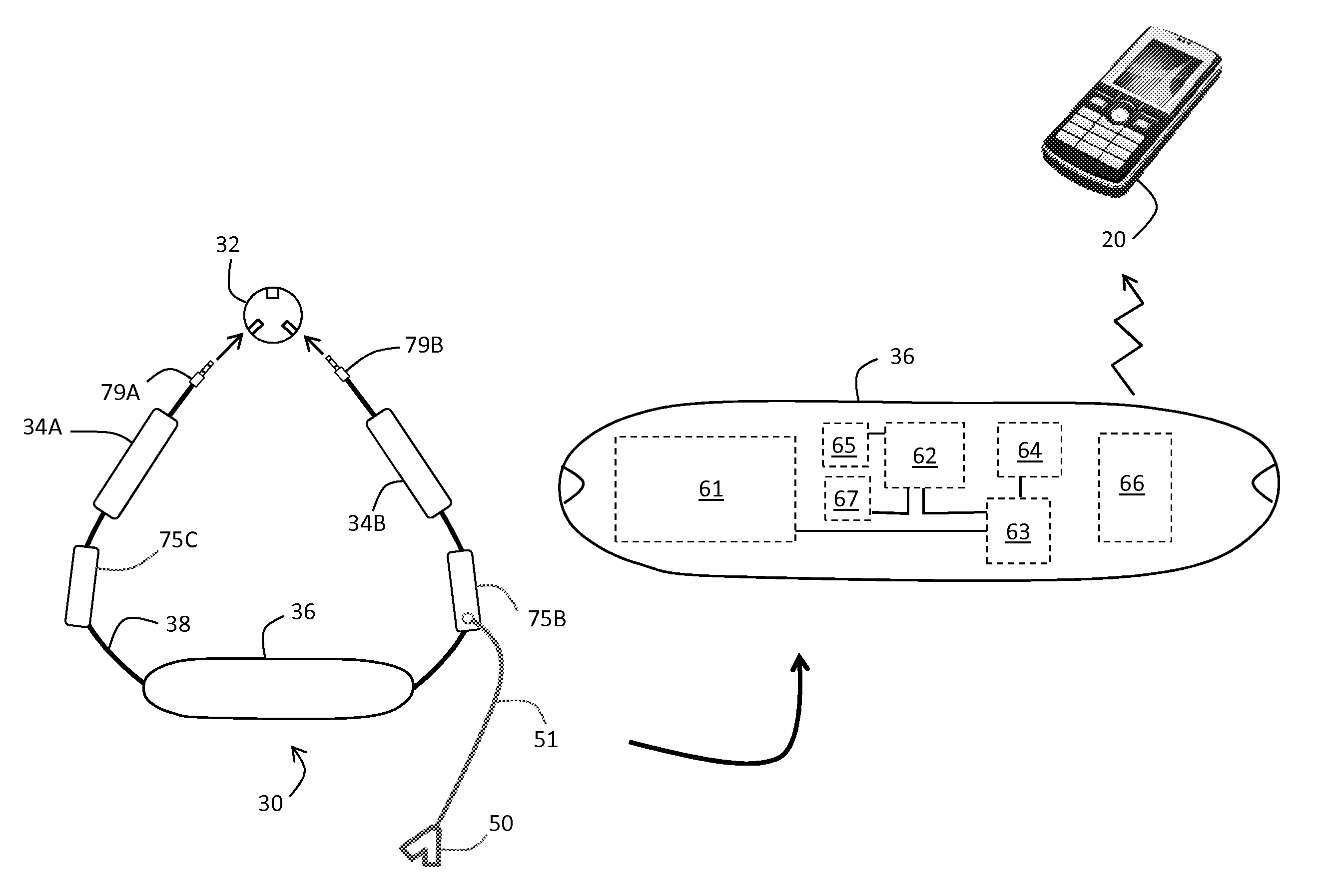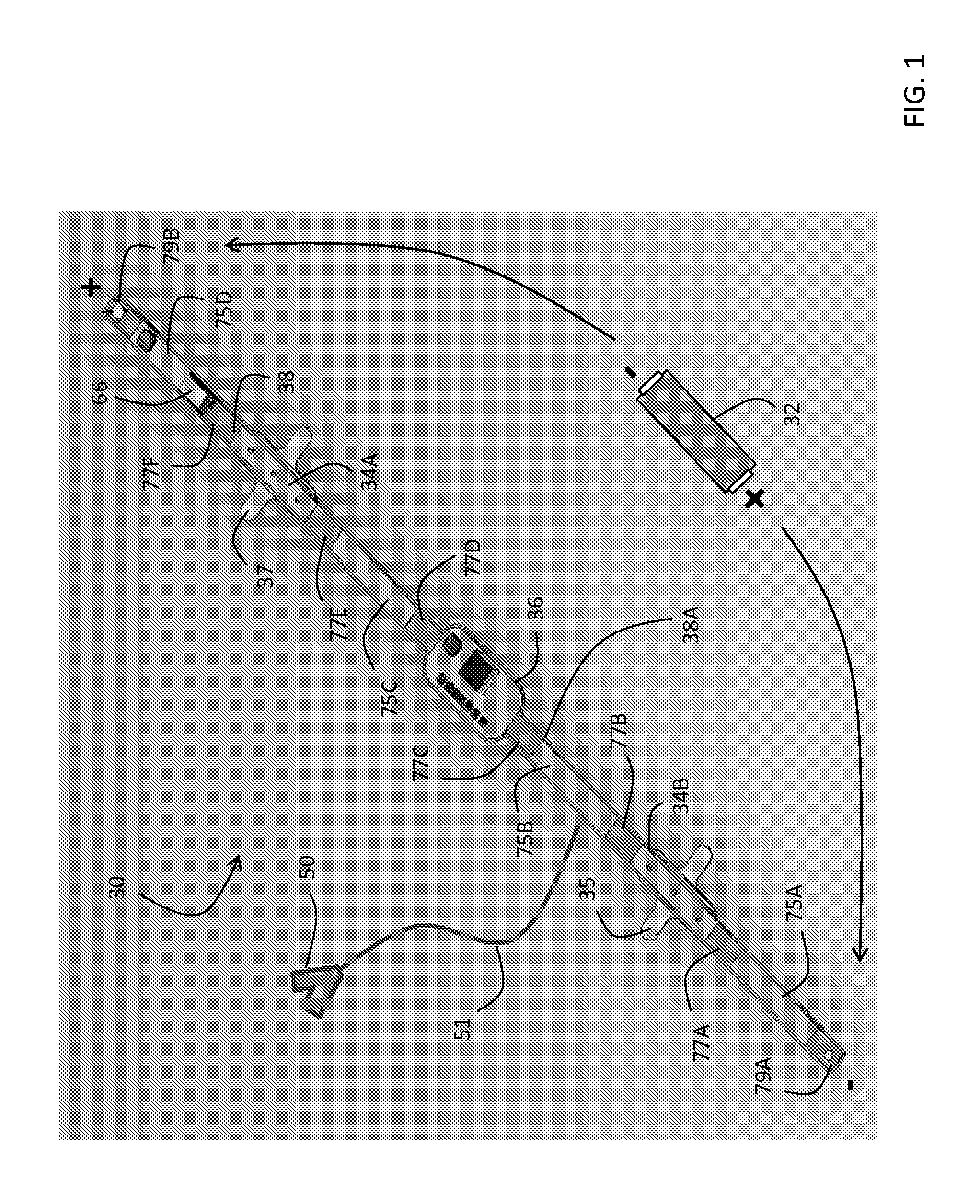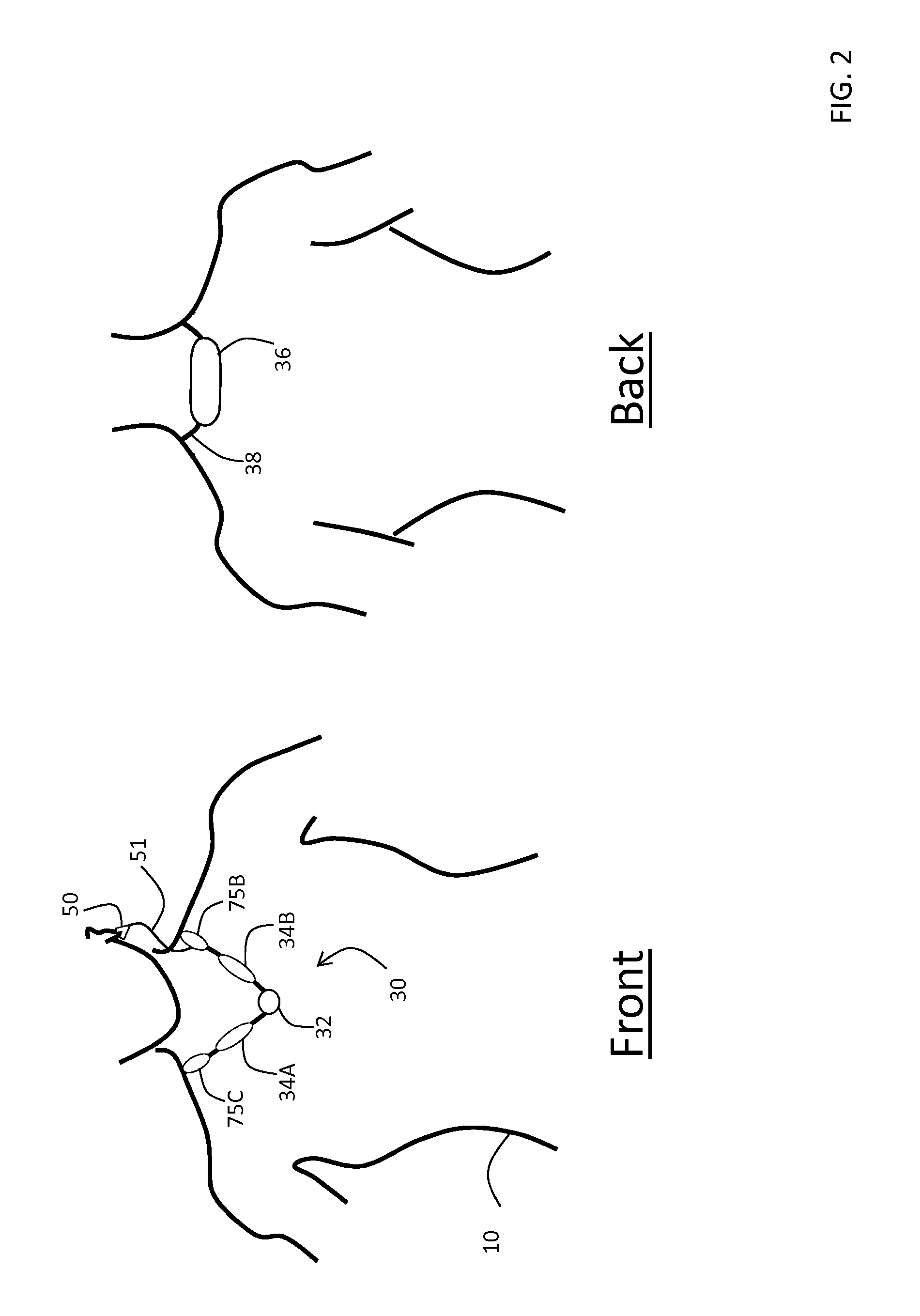Necklace-shaped physiological monitor
a physiological monitor and necklace technology, applied in the field of sensors, can solve the problem of easy snapping of the electrode, and achieve the effect of improving patient compliance and being easy to wear
- Summary
- Abstract
- Description
- Claims
- Application Information
AI Technical Summary
Benefits of technology
Problems solved by technology
Method used
Image
Examples
Embodiment Construction
[0053]As described above, the necklace according to the invention provides a simple, easy-to-wear sensor that measures all vital signs (HR / PR, SpO2, RR, TEMP, and SBP / DBP), hemodynamic parameters (thoracic fluid levels, CO, SV), and motion-related parameters (posture, degree of motion, activity level, and falls). Perhaps the most complex measurement made by the necklace is that for blood pressure, i.e. SBP and DBP. These parameters are determined from PTT separating heartbeat-induced pulses in the ECG and TBI waveforms, coupled with a PP determined from SV determined from the TBI waveform. Using these measurement systems, the necklace's measurement of SBP and DBP is both continuous and cuffless.
[0054]Also innovative is the necklace's measurement of SpO2. Here, an optical sensor featuring red and infrared light-emitting diodes (LEDs) clips on to the patient's ear to measure PPG waveforms. These signals pass through a flexible cable to circuitry within the necklace that processes them...
PUM
 Login to View More
Login to View More Abstract
Description
Claims
Application Information
 Login to View More
Login to View More - R&D
- Intellectual Property
- Life Sciences
- Materials
- Tech Scout
- Unparalleled Data Quality
- Higher Quality Content
- 60% Fewer Hallucinations
Browse by: Latest US Patents, China's latest patents, Technical Efficacy Thesaurus, Application Domain, Technology Topic, Popular Technical Reports.
© 2025 PatSnap. All rights reserved.Legal|Privacy policy|Modern Slavery Act Transparency Statement|Sitemap|About US| Contact US: help@patsnap.com



